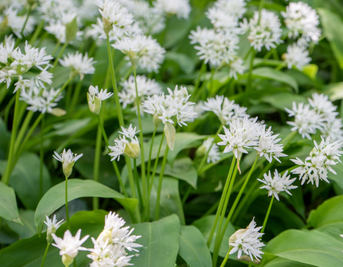How to reduce harmful LDL cholesterol through diet
by Monica Wilde. 2 February 2013
Cholesterol levels
If your doctor has told you that you have high cholesterol, he/she will mean that the LDL (Low Density) cholesterol (not HDL (High Density) cholesterol) level in your blood test is too high. It is important to keep LDL cholesterol levels low as high levels can make you more likely to have a heart attack or a stroke.
Unless you are in imminent danger from heart complications, and your doctor can advise this, there is a lot you can do to help yourself before you start to take statin drugs. While statin drugs have helped many people they do carry a risk of side effects, such as muscle pain and weakness, that many people find intolerable.
Diet for cholesterol
You can immediately improve your diet and cut down on foods that are high in cholesterol, saturated fat, and trans fats. Use olive oil instead of butter or blocks of margarine. Yoghurt instead of cream. Steam or grill instead of frying. Use low fat milk and cheeses. Try fish and tofu instead of red meat. Avoid fried and fatty foods like chips, bacon, burgers and commercial cakes and biscuits made of hydrogenated fats. Avoid crisps and nuts if you're snacking and replace them with dried fruit or pretzels. Eat more fruit and vegetables, especially raw.
Everyone with a high risk for cardiovascular disease should substitute more fruits, vegetables, grains and legumes in place of red meat and saturated fat. Look for food rich in the important homocysteine-lowering B vitamins, as well as vitamins C, E, and omega-three rich fish or seed oils.
Foods
ARTICHOKE
Did you know that globe artichokes have cholesterol lowering properties? Drinking artichoke tea can help to reduce cholesterol levels and help to prevent a future increase as well. Tea from artichoke leaves has been shown to reduce cholesterol by inhibiting HMG-CoA reductase and having a hypolipidemic influence, lowering blood cholesterol (Gebhardt, 1998).
To make artichoke tea cover 100g of artichoke leaves, stalk or roots with a litre of boiling water. Leave to infuse for 5 to 10 minutes and cool. Drink a cup of this tea three times a day, before meals. The tea is has a light green colour and is sweet. It is also useful for reducing your sugar intake as it makes everything you take afterwards taste sweet!
PUMPKIN SEED OIL
Consider adding pumpkin seed oil to your diet as it contains essential fatty acids that help to reduce the amount of cholesterol produced by the liver.
OLIVE OIL
Olive oil, especially extra-virgin olive oil, contains heart-healthy antioxidants that can lower unwanted (LDL) cholesterol but leave the needed (HDL) cholesterol in place. Add 2 tablespoons (23 grams) of olive oil to your food a day instead of other fats. Keep to this amount as olive oil is also high in calories. You can use olive oil to saute vegetables, add to a salad dressing (with vinegar) or make a marinade. Try olive oil instead of butter as a dip for bread.
NUTS
Nuts such as walnuts and almonds can reduce blood cholesterol. Walnuts are rich in polyunsaturated fatty acids which help to keep blood vessels healthy. Eat around a handful (45 grams) a day of unsalted (and unsugared!) almonds, hazelnuts, peanuts, pecans, some pine nuts, pistachio nuts or walnuts, to help lower your risk of heart disease. Just make sure the nuts you eat aren't salted or coated with sugar. Nuts are high in calories, so substitue them for fatty foods. For example, sprinkle some walnuts or almonds over a green salad instead of cheese or croutons.
SPICES
Capsaicin found in chilli peppers, curcumin found in turmeric, fenugreek, ginger, and onion have all been shown to reduce LDL cholesterol so use these liberally in your food (Srinivasan 2013).
Supplements
RED RICE YEAST
In addition to reconfiguring your diet, it is worth taking a food supplement called red rice yeast. It comes in capsules and is taken daily. Read more about red rice yeast treatment for reducing high cholesterol here.
POLICOSANOL
Policosanol is a natural extract from plant waxes (such as rice cane, yams and beeswax). It is used in heart health maintenance and to lower LDL cholesterol (Liu et al., 2012) as it helps control the liver's production and breakdown of cholesterol. It can be taken alongside red rice yeast, or statin medication with the supervision of your healthcare professional. We initially recommend 20mg per day taken with, or after, your evening meal. 10mg can be taken once cholesterol has started to drop.
SYTRINOL
Sytrinol is a natural extract from citrus fruits used in heart health maintenance. It can be taken alongside statin medication with the supervision of your healthcare professional. We recommend 2 capsules of 150mg each to be taken each day.
LECITHIN
Lecithin is high in nutrients and helps to raise HDL levels. It lowers the absorption of cholesterol from other foods.
PLANT STEROLS
Plant sterols are also sometimes added to margarines, orange juice and yogurt drinks. Some can help reduce LDL cholesterol by more than 10 percent. To get results you need at least 2 grams of plant sterols, about two large 250 ml wineglasses of plant sterol-enriched orange juice a day. Enriched foods with plant sterols or stanols don't seem to lower levels of triglycerides or high-density lipoprotein (HDL), the "good" cholesterol.
ARTICLE REFERENCES
Gebhardt R. (1998). Inhibition of cholesterol biosynthesis in primary cultured rat hepatocytes by artichoke (Cynara scolymus L.) extracts. The Journal of Pharmacology and Experimental Therapeutics.
Liu, S.; Tan, M. Y.; Zhao, S. P.; Rong, H. (2012). " Effects of policosanol on serum lipids and heme oxygenase-1 in patients with hyperlipidemia". Zhonghua xin xue guan bing za zhi 40 (10): 840–843. PMID 23302671
Srinivasan K.(2013). Dietary spices as beneficial modulators of lipid profile in conditions of metabolic disorders and diseases. Food Funct. PubMed PMID: 23364205.

